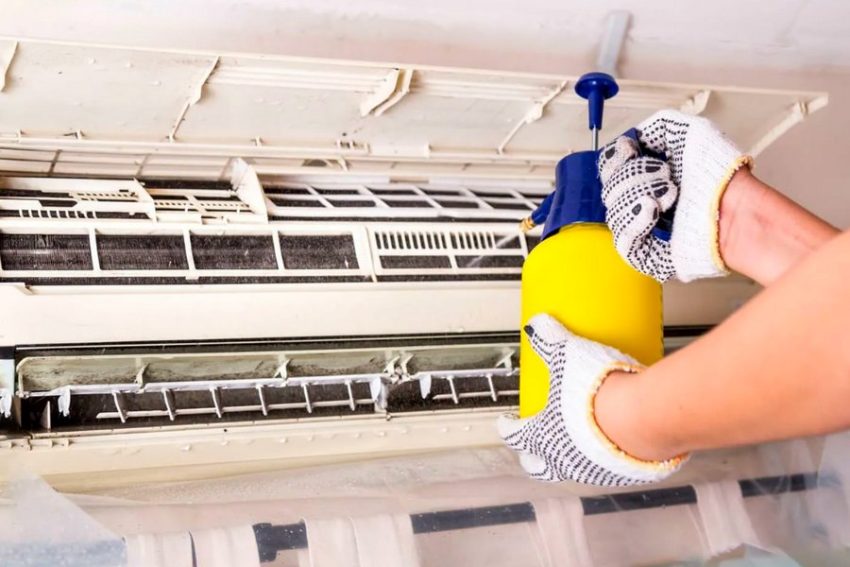HVAC Misconceptions Explained: What You Really Need to Understand

When it comes to heating and cooling their homes, a lot of people rely on their HVAC systems without completely understanding how these systems work or what recommended techniques to follow. Starting with frequent misconceptions about energy efficiency to the latest innovations in HVAC technology, there's a wealth of information that can help homeowners make smarter choices. Sadly, myths can often cloud our judgment, leading to poor decisions that may affect both convenience and costs.
In this article to dispel some of the key prevalent HVAC myths, providing you with the essential knowledge you need to keep your home comfortable year-round. If you're a new homeowner or an experienced resident looking to improve your heating and cooling systems, our extensive guide will cover everything from essential HVAC principles to practical maintenance tips and energy-saving strategies. Understanding your HVAC system is crucial not only for immediate comfort but also for long-term savings and efficiency.
Grasping Heating, Ventilation, and Air Conditioning Systems
HVAC stands for the technology used to regulate indoor climates, representing specific systems that work together. It combines different systems that work in unison to provide thermal comfort and maintain air quality in home, business, and factory spaces. Comprehending HVAC systems involves understanding how each component functions and how these components interact with one another to create a comfortable living or working environment.
The heating aspect of HVAC systems typically includes heaters or heating units that generate heat through different energy sources, like natural gas, petroleum, or electric power. Air conditioning systems, on the other hand, cool the indoor atmosphere during warmer months using refrigerants to capture and release heat, effectively lowering interior temperatures. Airflow is crucial for ensuring a steady flow of fresh air and removing contaminants, helping to create a more pleasant atmosphere.
To keep HVAC technologies running efficiently, regular maintenance is necessary. This includes routine check-ups and service, replacing air filters, and ensuring that all parts are functioning as intended. An awareness of HVAC systems is key for homeowners and entrepreneurs alike, as it allows them to make educated decisions about system setups, repairs, and improvements, ultimately leading to increased efficiency and enhanced comfort.

Typical HVAC Problems and Fixes
One of the most common HVAC issues homeowners face is a insufficiency of airflow. This can commonly be linked to dirty air filters or restricted ducts. A dirty filter hinders airflow, making your system work harder and less efficiently. To address this, examine and change your air filters consistently, ideally around 1 to three months. Additionally, verify that all vents are clear and that there is no clutter in your ductwork. Regular maintenance can eliminate airflow problems, keeping your home pleasant year-round.
Another frequent issue is an uneven temperature throughout your home. This situation can occur from a number of factors including insufficient insulation, duct leaks, or issues with the thermostat in general. If certain rooms are significantly hotter or colder, check the insulation and make sure that your ducts are sealed and in good condition. At times, simply tweaking your thermostat or switching it with a programmable thermostat can help. These steps can help circulate air more uniformly, ensuring a pleasant environment in all areas.
Finally, odd noises coming from your HVAC system can suggest various problems. Banging, knocking, or hissing sounds may suggest unsecured components or airflow restrictions. If you experience any unusual sounds, it is essential to inspect flapping panels or debris in the system. If the noises continue, contact a professional to diagnose and fix the problem before it magnifies into a more significant issue, potentially protecting you from costly repairs. Routine inspections and attention to minor signs can dramatically prolong the life of your HVAC system.
Energy Efficiency and Care Guidelines
To guarantee your HVAC system functions efficiently, regular maintenance is crucial. Start with updating the air filters every 30-90 days, depending on utilization and the kind of filter. A clean filter improves airflow and indoor air quality, allowing your system operate effectively while meanwhile lowering energy consumption. Additionally, keep the outdoor unit clear of debris, such as foliage and dirt, as this can hinder airflow and hinder the system's efficiency.
Arranging seasonal tune-ups can significantly prolong the life of your system and enhance its energy efficiency. During hvac company , a professional can maintain the coils, monitor refrigerant levels, and examine other components to spot potential issues before they worsen. Routine maintenance not only aids prevent costly repairs but also ensures that your system is running at optimal performance, leading to lower utility bills.
Employing a smart thermostat is another great way to improve energy efficiency in your home. Smart thermostats allow you to adjust temperature settings based on your schedule, making sure that your HVAC system isn’t overworking when you are away. Moreover, many smart thermostats can recognize your habits over time and modify accordingly, enhancing comfort and energy use, and simplifying more manageable to maintain an energy-efficient home environment throughout the year.
